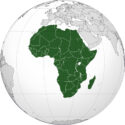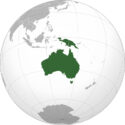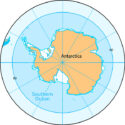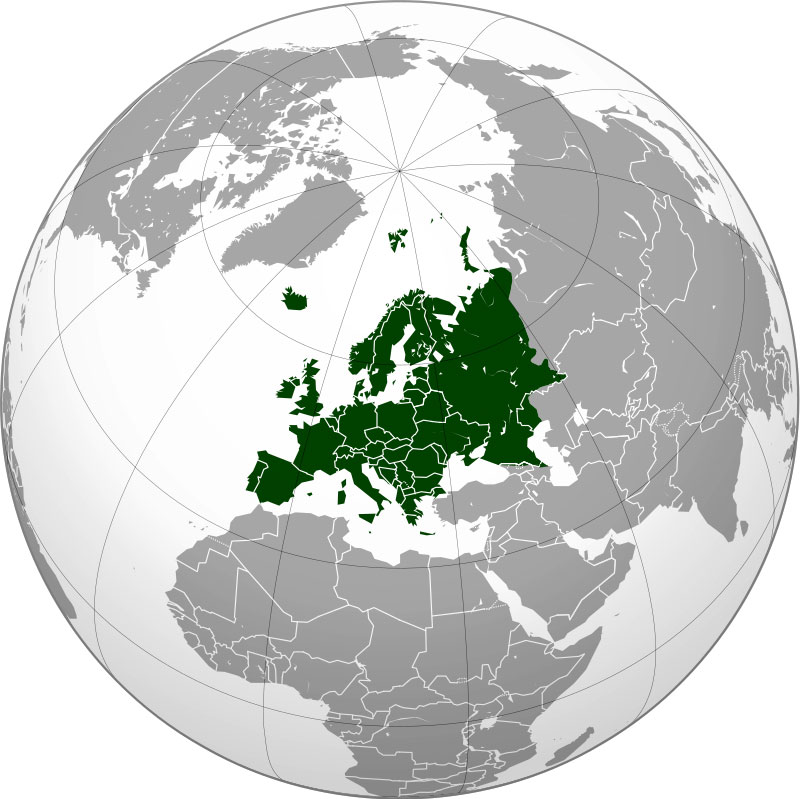 Europe is one of the wealthiest and 6th largest continent by size. It is considered to be a unique continent based on its culture and history. However, geologists consider it to be the subcontinent of Eurasia’s landmass. Europe shares 9.6% of the world’s total population and is the 3rd largest continent by population.
Europe is one of the wealthiest and 6th largest continent by size. It is considered to be a unique continent based on its culture and history. However, geologists consider it to be the subcontinent of Eurasia’s landmass. Europe shares 9.6% of the world’s total population and is the 3rd largest continent by population.
Geography
Europe covers an area of 10.53 million km2 which is about 7% of Earth’s total land area. But if you compare this area with Earth’s total surface (Land + Oceans) then it would be only 2%. Europe is bounded by the Arctic Ocean to the North, the Mediterranean and Black sea to the South, the Atlantic Ocean to the West, and the Asian continent towards its Eastern side. There are 44 recognized countries in Europe including the UK, Spain, Ukraine, Germany, France, and Italy.
Climate
Europe’s climate lies between the polar and tropic regions; also known as the temperate climate zone. Here temperature changes between -5 °C to 22 °C around the year in human-occupied areas. However, the temperature may fall below -42 °C in the coldest places. Other than this, the Gulf Stream also affects the temperature of Europe. It makes the temperature milder as compared to other regions located at the same latitude.
People and Culture
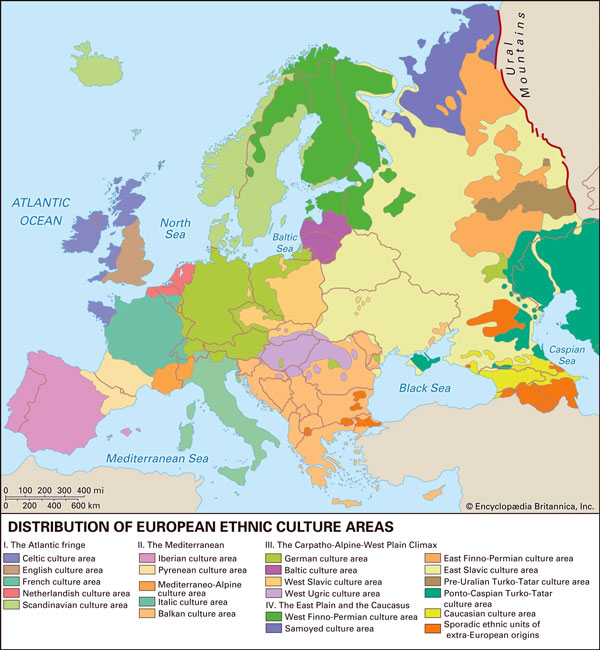 The human species living in Europe goes back 45,000 years ago. A lot of people have moved and settled in Europe since then from Asia and Africa. There are many cultural and language differences throughout its territories. Due to distinct cultural differences in short spans, Europe projects a sharp ethnic culture map. There are around 160 distinct cultural groups in Europe and hundreds of different spoken languages. Currently, the number of official languages in Europe is 24.
The human species living in Europe goes back 45,000 years ago. A lot of people have moved and settled in Europe since then from Asia and Africa. There are many cultural and language differences throughout its territories. Due to distinct cultural differences in short spans, Europe projects a sharp ethnic culture map. There are around 160 distinct cultural groups in Europe and hundreds of different spoken languages. Currently, the number of official languages in Europe is 24.
The two major religions in Europe are Christianity and Islam. Christianity is the most dominant religion; 3 out of 4 people are Christians. Around one-tenth of the people don’t place themselves in any religion category. The other minority religions by population are Judaism, Hinduism, and Buddhists.
Land Features
The European continent is subdivided into western and eastern Europe due to some cultural differences. Western Europe is smaller than its counterpart and has the longest coastline. Overall, European land has many rivers, lakes, and good access to oceans and seas. These features make transportation by water easier within Europe and towards other Continents.
Facts
- Vatican City is the smallest country in Europe having an area of 110 acres or 0.4 km². It is surrounded by only one country; Italy.
- Volga River is the largest river in Europe having a length of 3,530 kilometers. This river starts in Russia and flows through Western Europe.
- Mount Etna is the largest active volcano in Europe having a height of 3,357 kilometers. This volcano is located in Sicily, Italy, and is erupting lava and fumes all the time.
